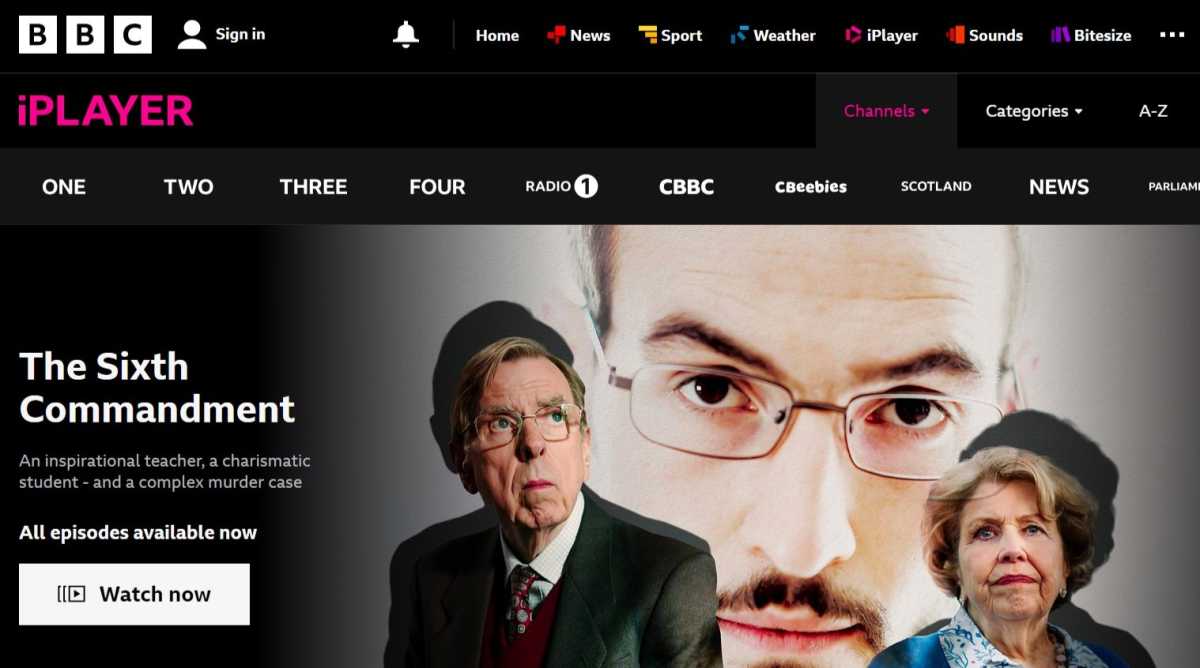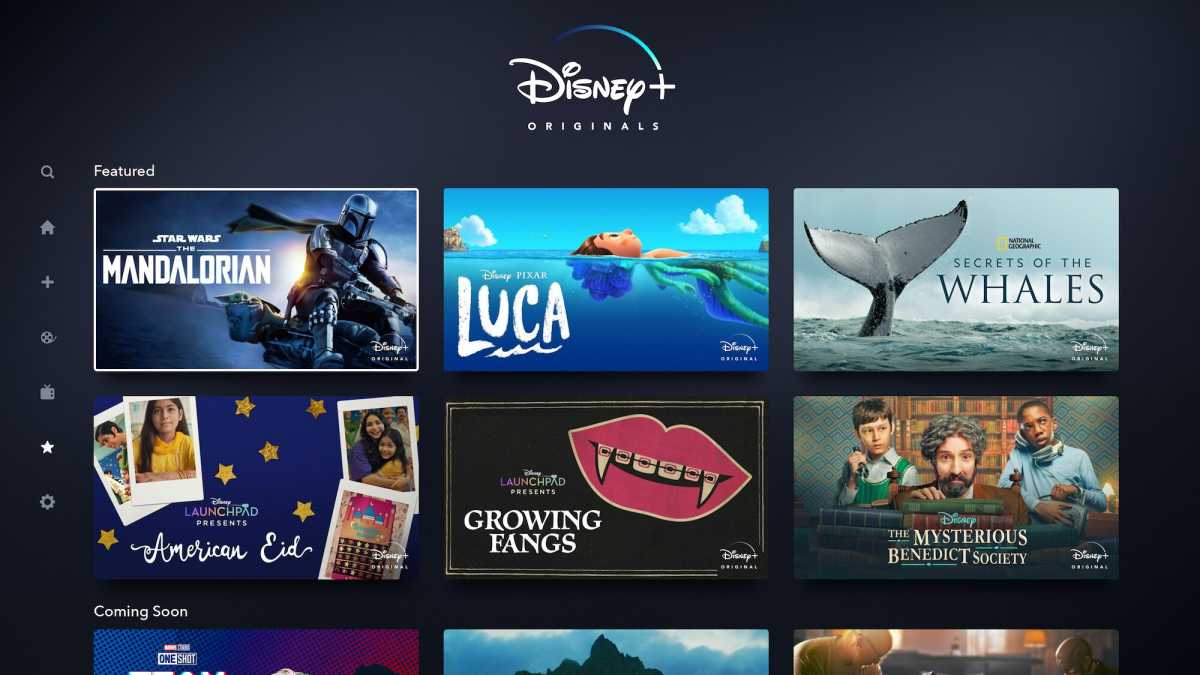The £159 you’re required to pay for an annual colour TV Licence in the UK can feel like a lot of money, particularly if the majority of content you watch is now online. Working out at just over £13 per month, that’s more expensive than a subscription to a streaming service such as Netflix, Amazon Prime, Now or Disney+, which generally cost in the region of £6 to £10 per month.
So it’s natural to question whether you really need to pay the TV Licence, especially if you aren’t actually watching any Freeview programming.
In this article we aim to clear up any confusion over whether you need a UK TV Licence, and answer your most common questions.
When do I need a TV Licence?
A TV Licence is a legal requirement if you watch any television content at the same time that it is broadcast, whether that’s on a TV, a PC, a laptop, a smartphone or a tablet, a games console or any other electronic device. You will also need a TV Licence to watch BBC iPlayer.
If you are using some sort of time-shifting technology to pause, rewind, fast-forward and record live TV programmes, this feed is still considered to be live and you will need a TV Licence.
What is considered live TV?
Often you will hear that a TV Licence is required if you watch any live TV, but this can confuse the situation because live TV can also refer to content that is broadcast at the same time that it is recorded. Here the use of the term ‘live TV’ merely implies that it is being broadcast at that moment, regardless of when it was recorded.
When don’t I need a TV Licence?
On-demand television does not require a TV Licence. This is any content that is viewed later than the initial broadcast time, accessible via catch-up TV services (except BBC iPlayer), YouTube or other online video platforms, or various streaming services.
Content that is not considered traditional television programming is also exempt. You do not need a TV Licence to listen to radio, for example, even when it is streamed live on YouTube with a video feed of the host chatting away in their studio.
Online video streamed via YouTube and other online video platforms requires a TV Licence only if it is a live stream of a television programme. So it’s fine to watch live unboxing videos, press conference streams and the like, but if you were to, for example, watch GB News Online streamed live on YouTube you would need a TV Licence.
Do I need a TV Licence if I don’t watch BBC content?
It is a common myth that the TV Licence is required only if you watch BBC content. This is not true. The TV Licence has strong ties to the BBC, but avoiding BBC content is not enough to get you out of that annual fee.

Anyron Copeman / Foundry
So why do I need a TV Licence to watch BBC iPlayer?
It has been a legal requirement to hold a TV Licence if you want to watch BBC iPlayer since September 2016, even if you are not using it to watch live content. No other catch-up services have this blanket requirement, so why iPlayer?
Also see: How to watch BBC iPlayer abroad.
The then-culture secretary John Whittingdale said of the amendment: “When the licence fee was invented, video-on-demand did not exist. And while the definition of television in the legislation covers live streaming, it does not require viewers to have a licence if they watch BBC programmes through iPlayer even if it is just a few minutes after transmission.”
“The BBC works on the basis that all who watch it pay for it. Giving a free ride to those who enjoy Sherlock or Bake Off an hour, a day or a week after they are broadcast was never intended and is wrong,” continued Whittingdale.
Do I need a TV Licence to watch BritBox?
No, although BritBox includes programming from the BBC and iPlayer, the BBC asserts that it is a subscription service and therefore is exempt from the licence requirement.
What happens if I don’t buy a TV Licence?
Watching live TV without a valid TV licence has serious consequences: it’s considered a criminal offence, which can lead to prosecution, a court appearance and a fine of up to £1,000 plus legal costs.
There’s a good chance that those who don’t own a licence but do watch live TV will be caught out, too. If your home doesn’t have a TV Licence, you are already on the TV Licensing authority’s database.
Inspectors may visit your home, though they can enter only with your permission unless they have a search warrant.
Can I save money on a TV Licence?
Note that the law changed in August 2020, and a TV Licence is no longer free to all over-75s. Now you will only get a free TV Licence if you are over 75 and you can prove you claim pension credit.
There are some circumstances in which a TV Licence may be discounted, however.
If you are a resident of a care home, supported housing or sheltered accommodation, you may need only a concessionary TV Licence, which costs £7.50 per room, flat or bungalow.
If you are blind, you’re eligible for a 50% concession, which will in turn cover anyone who lives with you. Partially sighted or sight-impaired people are not eligible for this discount.
If you’re a student, you can get a refund for the summer months that you spend away from uni.
But if you really want to avoid paying the TV Licence fee, just don’t watch live TV or BBC iPlayer.
Do I really need a TV Licence?
The thought of not having a TV Licence would have been laughable only a few years ago. But, today, with fast broadband available to more of us than ever, a range of online catch-up TV solutions, YouTube and other web video sites, Amazon Prime, Netflix, DVDs and Blu-ray, it’s quite possible to get your telly fix without parting with the annual premium.
Potentially, you could even start saving right now, and cash in what’s left of your TV Licence today.
But our guess is most people are not taking advantage of this money-saving opportunity. The number of households that subscribe to broadband but do not hold a TV Licence is estimated to be very small.
It’s going to come down to a personal choice and whether you really could live without live programming and BBC iPlayer.
Do I need a TV Licence to own a TV?
No, you do not need a TV Licence to own a TV. However, if the TV Licensing authority doesn’t have you on its database it will send you a reminder to buy a TV Licence.
If you are not using the equipment to watch live TV (for instance, it’s hooked up only to a games console or used for playing training videos) you will need to declare this to the TV Licensing authority; it’s possible that an enforcement officer will be sent to verify this is the case.
According to the authority, one in five people are found to need a TV Licence; if this is you, you could face prosecution, a court appearance, and a fine of up to £1,000 (plus legal costs).
Do I need a TV Licence to watch TV on my smartphone, tablet or laptop?
You don’t need a TV Licence to watch on-demand content on your smartphone, tablet or laptop. However, if the content is live or streamed from iPlayer, you will need a TV Licence to watch TV on a mobile device.
Do I need a TV Licence to watch TV outside my home?
Your home’s TV Licence covers any device that is powered solely by its own batteries, wherever you are. This means, provided you don’t plug your device into the mains, you can watch live TV on a mobile phone, tablet or laptop inside a property that isn’t covered by a TV Licence, such as when you’re in a shop, bar or restaurant or at work. (You might get sacked, of course, so be careful.)
“As long as the address where you live is licensed, you’re also covered to watch TV outside your home using any device powered solely by its own internal batteries. This includes your mobile phone, laptop and tablet,” say the TV Licensing authority.
Do I need a TV Licence to watch Freeview?
If you are watching it live or via iPlayer, yes, you will need a TV Licence. However, if you are watching television programmes that were originally broadcast on Freeview via a catch-up service that is not iPlayer, you do not need a TV Licence.
Do I need a TV Licence to watch catch-up TV?
Not unless it’s BBC iPlayer. You do not need a TV Licence to watch ITV Hub, All 4 or any other on-demand TV service. However, any live features within these services demand a licence.
Do I need a TV Licence to watch YouTube?
No, you do not need a TV Licence to watch YouTube videos: you are not watching live TV content as it is broadcast, and online video is not considered to be television programming.
TV programmes that are uploaded to YouTube following their broadcast follow the same rules as catch-up TV.
The only exception is when you are watching a television programme that is simultaneously being streamed live on YouTube, as is the case with our earlier example of GB News Online.
Do I need a TV Licence to watch films?
A TV Licence is required to watch films only as they are broadcast on live TV. Films enjoyed following their broadcast via on-demand services, and those provided via DVD or Blu-ray, are not subject to the licensing requirement.
Do I need a TV Licence to watch Disney+?
No, you do not need a TV Licence to watch Disney+. The content provided is offered on-demand; that is, it is not streamed as it is broadcast. If either service starts to stream live TV then a TV Licence will be required.

Disney+
Do I need a TV Licence to watch Netflix or Amazon Prime?
Normally, the answer to this would be no as per services like Disney+. However, Amazon Prime and Netflix have started showing live content such as sports and comedy.
If you do decide to watch this content, and it’s not via catch-up of some kind, then you will need a TV licence to watch it lawfully.
Otherwise, watching the wrong kind of content on Netflix could result in a fine of up to £1,000.
Do I need a TV Licence to watch Now TV?
Yes and no. The on-demand TV shows and movies available via Now are exempt from the TV Licence, but if you ever watch any of the live channels that are accessible through the platform you will need a TV Licence.
Do I need a TV Licence to watch Sky Go?
Yes, Sky Go demands a TV Licence. Your home must be covered by a TV Licence if you subscribe to Sky. In this case, you will also be covered to watch live content from Sky using Sky Go on your smartphone, tablet or computer – and do so from outside the home, provided the device is powered solely by its own batteries.
Although the catch-up content within Sky Go is technically exempt from the licensing requirement, a Sky subscription itself is not and you cannot have one without the other.
Do I need a TV Licence to listen to radio?
No, radio is exempt from the TV Licence, including BBC radio channels.


